Atelier Ryza: Ever Darkness and the Secret Hideout Review
Frankly, there has been too much Atelier lately. The Arland Trilogy released less than a year ago late in 2018, then since there’s Nelke and the Legendary Alchemists, Atelier Lulua, and now Atelier Ryza: Ever Darkness & the Hidden Hideout. All of these games will be bookended by the Dusk Trilogy that releases in January. That’s nine Atelier games in about thirteen months.
It can be overwhelming for an outsider looking in on the series to figure out what to play. While Atelier Ryza is not perfect, and Atelier Lulua, in general, is a more refined experience, if you were only going to play one Atelier game this year, it should be Ryza.
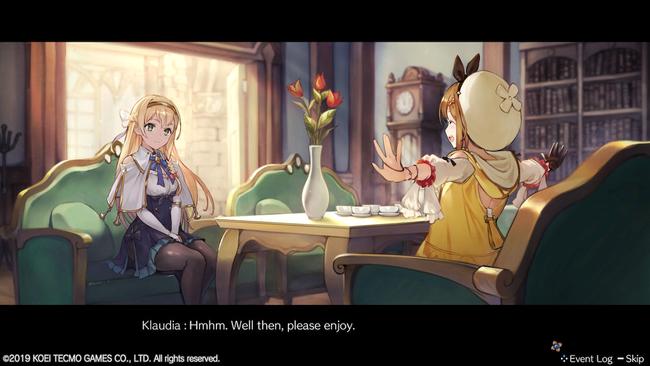
Taking place on a secluded island, Ryza wants nothing more than an adventure to shake up her boring life. She finds an abandoned boat one day, and drags her friends to the mainland. While exploring the nearby forest, Ryza runs into a girl in trouble… and an alchemist saves them all. This begins Ryza’s interest in alchemy, and she begins her training while the alchemist Empel explores the ancient ruins on the island and the surrounding area.
While Atelier games are generally more about the characters you meet than the world around them, Atelier Ryza feels more personal than a lot of recent entries. You watch as Ryza begins alchemy and grows as a person, even when her island town finds her weird and the alchemy off-putting. You also learn more about each character as well. While character quests and endings are not present in Atelier Ryza, it means that their stories and growth are more integrated into the main story than in some previous entries.
The additional steps taken for more engaging stories also extends to Ryza’s quest system. You no longer go to someone and take on requests from faceless people to earn more money; instead, you take quests from the island’s residents. Each quest begins with a short cutscene before giving you the details, giving you a reason to be invested in completing the quest and making the lives of the townspeople better as a result.
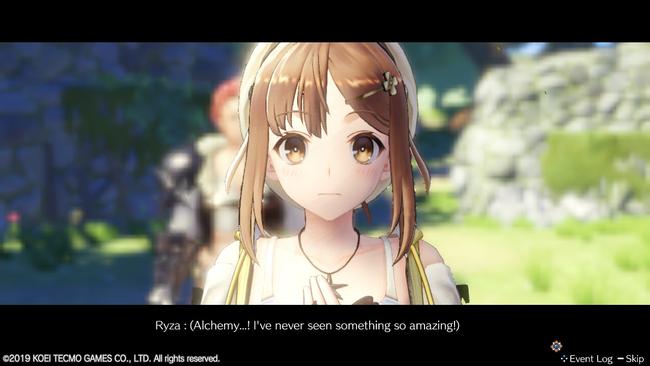
Quest rewards also are no longer money, either--typically, completing a quest will give good quality materials, and even sometimes new recipes or other perks. While the quests end up being optional, they’re simply a lot more rewarding than requests use to be, which is something I only did if I had the items or materials on hand.
The problem is that generally, it feels a bit directionless. Atelier Ryza takes a very hands-off approach with guiding the player, and it doesn’t always work out well. Cutscenes will end without giving a clue of what to do next. While the Memo is just a button click away, it still feels strange during the times where a cutscene ends without an indication of the next objective.
There’s more than one occasion where Ryza will go “I have an idea of what to do!” and will never mention what that idea is. Then you check the Memo and it tells you to create a certain item or head to a specific location. It’s good that the Memo is there, but it feels like Atelier Ryza relies on it a bit too heavily to move the player forward.
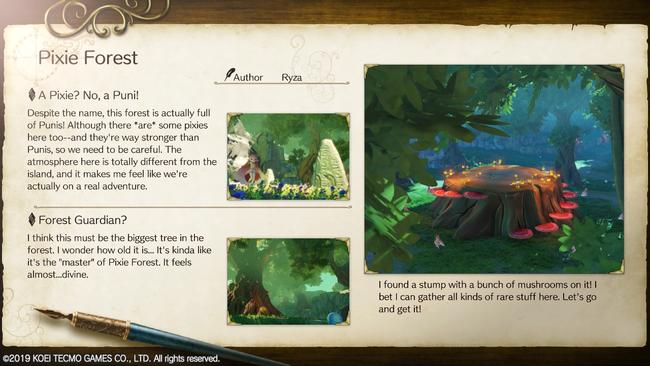
The tweaks to storytelling aren’t the only change to Atelier Ryza. The game very quickly acclimates you to the new battling system. Instead of a turn-based affair, Atelier Ryza takes a few pages from Final Fantasy’s ATB system. Characters’ actions will come up when it’s their turn, and the action will not stop, even when you’re in menus.
One key difference is that you’ll only be controlling one character at a time. You can switch quickly between your party, but those you aren’t controlling will act on their own based on the equipment they have. Equipment creation was always important in Atelier games, but now it’s essential to pay attention to what you’re making. Weapons will have levels in Offense, Defense, and Support, and these levels will determine how the character will react while not being controlled. So if you want Klaudia to heal people when they’re low on HP, her weapon will need higher levels in support to ensure she does just that.
It’s a lot more active than previous Atelier titles, but sometimes it can be overwhelming. Especially during a boss battle, you need to keep track of who is going when, when to use AP for skills or to raise your tactical level, how many more times you can use items, what the other party members what you to do to land combos… all while not being able to pause the action. While generally, the battle system is fun and engaging, there are times where I could just tell that dragon to chill out for a second while I decide what skill to use.
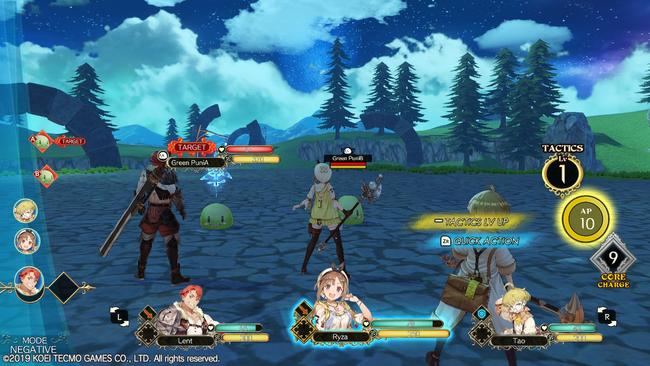
But the story and the battle system can take a backseat to Atelier’s main draw--crafting items. Atelier Ryza has a completely overhauled crafting system, and while it looks really complicated, it actually simplifies the mechanic a lot. Adding ingredients of the proper element and type will give you certain benefits, such are a higher quality item or more room to add traits. Eventually, you’re even able to modify existing recipes into entirely new items, which really makes it feel like you’re a budding alchemist.
There are some wrinkles in the system, though. The game isn’t always clear on when you can or can’t modify a recipe-- there are multiple times where Atelier Ryza tells me I can make a new recipe but I didn’t actually have the items needed. Also unlike older games, you can’t easily make an item you’re missing for another recipe easily. It’s a minor annoyance, but when scrolling through pages of items it’s easy to forget what you were trying to do. The gem system that unlocks later sounds good, but I ultimately found it not worth the effort of using.
The wrinkles in the game’s various systems and mechanics are small, but it does eventually start to add up. Battles are sometimes stressful, and there were occasions that I was missing materials for key items that I had no clue how to find. The story has you waiting around a lot, which is a good time to make items, but also strange considering there’s no real days or time limit in Atelier Ryza.
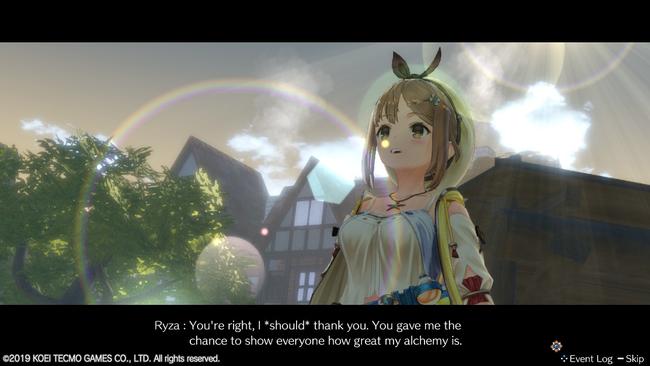
Ultimately, though, they’re the kind of wrinkles that can be smoothed out in a sequel, and it’s pretty likely that Atelier Ryza is the first of its own trilogy. Even with the wrinkles, though, it’s a great jumping in point for newcomers to the series, with its simpler approach to alchemy and lack of time limits to adhere to. While I may have enjoyed Atelier Lulua more, that title comes with three other games’ worth of baggage to deal with. Atelier Ryza is a fresh start, and a perfect title to jump right into the series with.